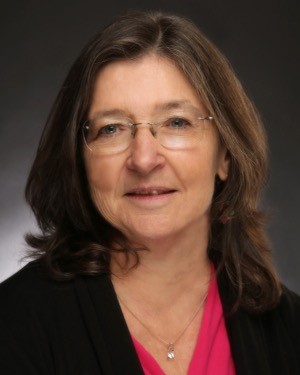Digital citizenship

The 4th of July isn't just about fireworks and picnics.
Independence Day is a chance to talk to our kids about democracy and citizenship. Each of us shares a duty to be informed and contribute to the greater good.
Mary Perry's perspective
Today, that responsibility feels more complex than ever. Kids are growing up in a digitally-connected world that is convulsing with change. How do we make sure they have the skills they need to thrive and make positive contributions to it? In short, how do we raise and educate safe, smart, responsible digital citizens?
What do we mean by terms like digital and media literacy?
A number of organizations are working to help families and schools confront this challenge. They start by defining some terms.
|
Term |
Meaning |
Source |
|---|---|---|
|
Digital Literacy |
The ability to use information and communication technologies to find, evaluate, create, and communicate information, requiring both cognitive and technical skills. |
American Library Association |
|
Information Literacy |
A set of abilities requiring individuals to recognize when information is needed and [to be able to] locate, evaluate, and use effectively the needed information. |
American Library Association |
|
Media Literacy Education |
Provides a framework… [for] using messages in a variety of forms—from print to video to the internet. Media literacy builds an understanding of the role of media in society as well as essential skills… for citizens of a democracy. |
Center for Media Literacy |
Schools need to make digital citizenship and media literacy part of the curriculum.
As Carol Kocivar recently pointed out in this blog, California has created an expansive set of Model School Library Standards that can help educators elevate digital and media literacy as part of their curriculum content. In addition, the California Department of Education (CDE) has posted free resources that teachers can incorporate into their instruction:
- Assignment: Media Literacy: K–12 history-social science, language arts, and health curricula to teach media literacy as a critical consumer
- Critical Media Project: High school media literacy video-based curriculum focusing on topics like age, class, disability, gender, race/ethnicity, religion, etc.
- International Society for Technology in Education Technology Standards: Lessons based on learning goals for digital literacy for ages kindergarten through adult.
- Common Sense Education: K–12 digital citizenship curriculum, including professional development.
However, the use of these materials is voluntary and very little is known about how often or how well digital citizenship and media literacy are taught. A bill currently under consideration by the California State Senate, Assembly Bill 787 (Gabriel), calls for the CDE to conduct a survey among California educators to learn more about what is happening.

In the Ed100 blog
How schools can prevent truth decay.
At a PTA convention workshop on the subject in April 2023, Renee Ousley-Swank from the CDE shared information about school districts that are committed to providing students with this information. She worked with local school district librarians to create two short videos for the workshop that illustrate what is possible and the role parent leaders can play in realizing those possibilities.
- Dinuba Unified School District, located in Tulare County, serves about 6,500 K-12 students. The district adopted its Digital Learning Plan in 2022.
- Encinitas Union School District, in San Diego County, serves 5,400 K-6 students. This video explains the district’s approach to media and information literacy.
Parents can be learners, teachers and advocates
When it comes to media literacy education, parents have important roles as learners themselves, as teachers of their own children, and as advocates in schools. The free curriculum from Common Sense Education, which is used by many schools, includes resources teachers can share with parents (in both English and Spanish) that explain the concepts and provide ideas for at-home activities.
The curriculum is organized around six topics:
- Media Balance & Well-Being
- Privacy & Security
- Digital Footprint & Identity
- Relationships and Communication
- Cyberbullying, Digital Drama, & Hate Speech
- News & Media Literacy
Their work also includes a powerful suite of materials parent leaders can use to share information with families, support classroom instruction in digital and media literacy where it’s happening, and learn about how such instruction can be implemented in their schools.
Experts increasingly agree about what high-quality media literacy education looks like. Their work can help schools and families create strong programs. For example, RAND, a non-profit research organization, has been among the leading voices calling attention to the need for media literacy education. This Ed100 post explains their research related to media literacy specifically. RAND recently published curriculum guidance that educators can use to plan, implement, and evaluate their efforts. It includes a six-step framework with questions like these:
- Vision: Have school and/or district staff developed a shared vision about media literacy education, including agreeing on standards to inform what is taught?
- Context: How have any discussions of media literacy been informed by our local context, including community needs and possibilities for community support?
- Implementation readiness: What is the plan for implementing media literacy instruction? Are there classrooms or schools teaching this now or is there a timeline? Is there an intent to build on current efforts to get to a district level implementation?
- Instructional resources: What, if any, instructional resources have teachers, schools, or the district selected? How were they chosen?
- Family communication: What plans are there, or could there be, for sharing media literacy information with families?
- Measurement: How does the school and/or district plan to measure students’ competency in media literacy?
In February, 2023, the California State PTA adopted a position statement advocating for strong Media Literacy Education. It emphasizes that today’s families — including both young people and adults — must develop media literacy skills. Ultimately, our democracy and our quality of life depend on it.
That’s something worth talking about on the anniversary of our nation’s founding.
 Mary Perry, an independent education consultant and longtime advisor for Ed100.org, has served many leadership roles for the California State PTA including Vice President for Education. She has contributed to Ed100 as a writer and she presented at the Ed100 Academy for Student Leaders in 2020, ‘21 and ‘22 to help bring students to a shared level of understanding of the education system.
Mary Perry, an independent education consultant and longtime advisor for Ed100.org, has served many leadership roles for the California State PTA including Vice President for Education. She has contributed to Ed100 as a writer and she presented at the Ed100 Academy for Student Leaders in 2020, ‘21 and ‘22 to help bring students to a shared level of understanding of the education system. Tags on this post
All Tags
A-G requirements Absences Accountability Accreditation Achievement gap Administrators After school Algebra API Arts Assessment At-risk students Attendance Beacon links Bilingual education Bonds Brain Brown Act Budgets Bullying Burbank Business Career Carol Dweck Categorical funds Catholic schools Certification CHAMP Change Character Education Chart Charter schools Civics Class size CMOs Collective bargaining College Common core Community schools Contest Continuous Improvement Cost of education Counselors Creativity Crossword CSBA CTA Dashboard Data Dialogue District boundaries Districts Diversity Drawing DREAM Act Dyslexia EACH Early childhood Economic growth EdPrezi EdSource EdTech Education foundations Effort Election English learners Equity ESSA Ethnic studies Ethnic studies Evaluation rubric Expanded Learning Facilities Fake News Federal Federal policy Funding Gifted Graduation rates Grit Health Help Wanted History Home schools Homeless students Homework Hours of opportunity Humanities Independence Day Indignation Infrastructure Initiatives International Jargon Khan Academy Kindergarten LCAP LCFF Leaderboard Leadership Learning Litigation Lobbyists Local control Local funding Local governance Lottery Magnet schools Map Math Media Mental Health Mindfulness Mindset Myth Myths NAEP National comparisons NCLB Nutrition Pandemic Parcel taxes Parent Engagement Parent Leader Guide Parents peanut butter Pedagogy Pensions personalized Philanthropy PISA Planning Policy Politics population Poverty Preschool Prezi Private schools Prize Project-based learning Prop 13 Prop 98 Property taxes PTA Purpose of education puzzle Quality Race Rating Schools Reading Recruiting teachers Reform Religious education Religious schools Research Retaining teachers Rigor School board School choice School Climate School Closures Science Serrano vs Priest Sex Ed Site Map Sleep Social-emotional learning Song Special ed Spending SPSA Standards Strike STRS Student motivation Student voice Success Suicide Summer Superintendent Suspensions Talent Teacher pay Teacher shortage Teachers Technology Technology in education Template Test scores Tests Time in school Time on task Trump Undocumented Unions Universal education Vaccination Values Vaping Video Volunteering Volunteers Vote Vouchers Winners Year in ReviewSharing is caring!
Password Reset
Search all lesson and blog content here.
Login with Email
We will send your Login Link to your email
address. Click on the link and you will be
logged into Ed100. No more passwords to
remember!














Questions & Comments
To comment or reply, please sign in .